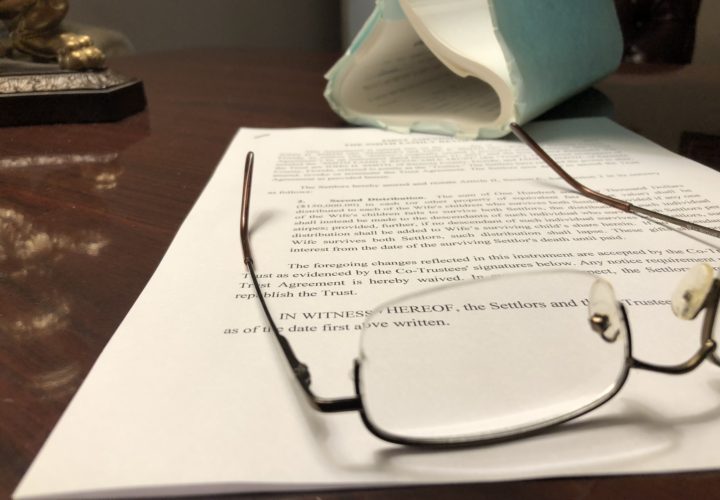If you are getting divorced, or are already divorced, you need to be aware of how the dissolution of your marriage affects your estate plan. It is important to understand that you already have an estate plan. Either you have a will or a trust, or what the State of Florida provides which could include your spouse getting some or all of your assets. Important issues to consider are what happens during the divorce, what happens after the divorce, whether there are children, and how assets are left to those children?
During Divorce
If a spouse dies while divorce is pending, the surviving spouse will inherit through the deceased spouse’s will. If there is no will, the surviving spouse will inherit all of the estate if there are no children from a previous relationship and at least half if there are children from outside the marriage. Therefore, when you decide on divorce, it is necessary to amend or create a will to minimize the amount your spouse would inherit. Also, the law does not provide for private contracts such as life insurance during divorce. You will need to make sure you change any beneficiary designations naming your spouse.
Unfortunately, it will not be possible to completely disinherit your spouse until the divorce is complete. Under Florida Law, a surviving spouse is entitled to a life estate in the primary residence of the deceased spouse and can claim up to thirty percent of the value of the spouse’s total estate. The surviving spouse’s rights are not affected while a divorce is pending, only upon its completion. Furthermore, these rights can only be waived by a pre or postnuptial agreement. The matter gets a little more complicated if you have children.
After Divorce
When you get divorced, the law treats your ex-spouse as if he or she had died at the time of the dissolution. This means there is no need to change your will to eliminate an ex-spouse once the divorce is complete. While the law has changed to include beneficiary designations, it is still a good idea to change the beneficiary designation on any asset where your spouse is named. Also, be aware that if you did wish to leave something to your ex-spouse, you will need to amend your documents.
Children
If there are children in the marriage and one parent dies, the surviving parent will likely be the guardian. This preference is statutory, and there is nothing the other spouse can do to affect this. The surviving parent would only be excluded if they were deemed by the court to be unfit as guardian. Regardless, a secondary guardian should be nominated in case the surviving spouse is unable or unwilling to act as guardian.
You may not be able to prevent your ex-spouse from becoming guardian of your children, but you can keep them from gaining control of assets you leave for the children including life insurance proceeds, bank accounts, your home and so on.
If no other plans are made, the surviving parent will gain control over the inherited assets as guardian of the children. This result can be avoided through a trust. Using a trust, you can appoint a relative or friend of your choosing to take control of your children’s assets. You can direct how and when those assets are to be used and at what ages they are to be turned over to your children. The trust can be separate or as part of your will.



